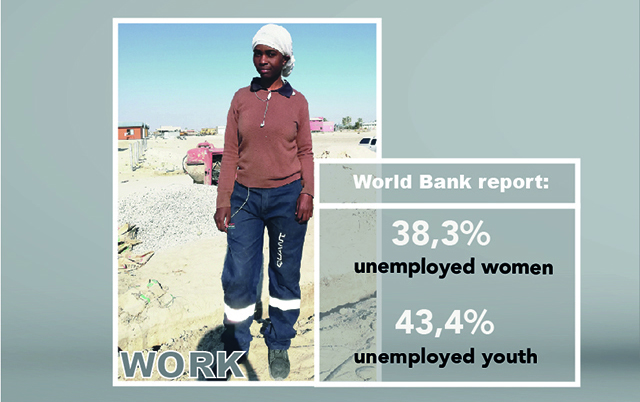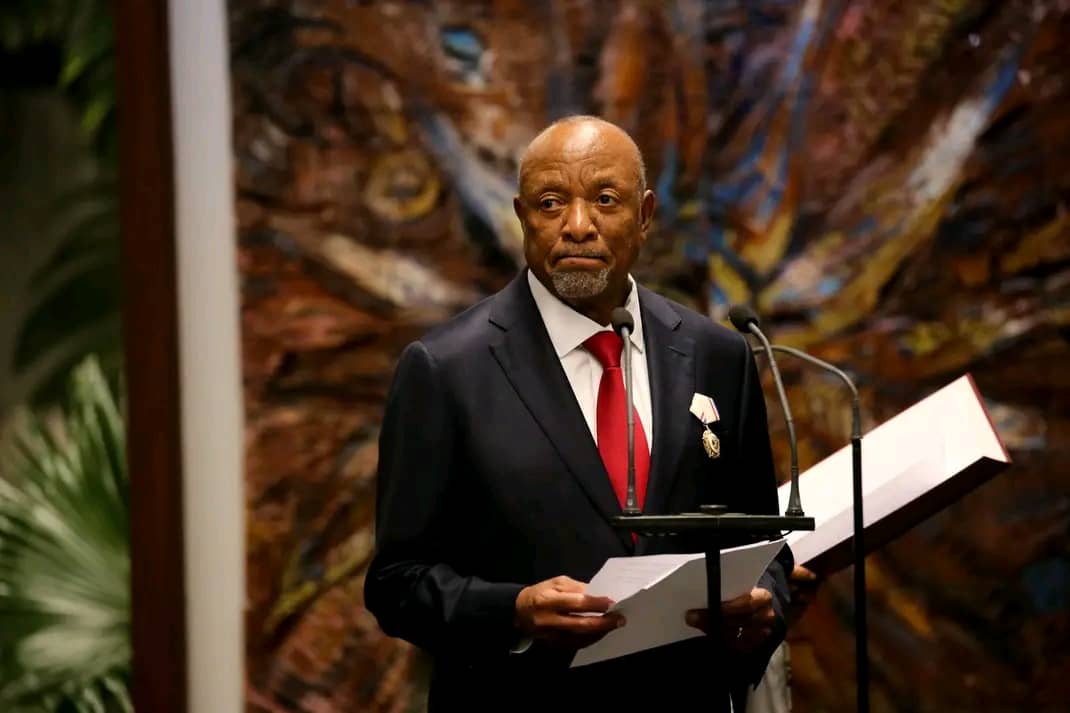THE sight of two qualified civil engineers employed in entry-level positions on a construction site at Ondangwa paints a glaring picture of the desperation university graduates endure in securing jobs.
The two, Sophia Shuumbwa and Emilia Kamati, are employed as stock controller and foreman, respectively, at Tsalach Engineering – a construction company under Mecko Investments.
Shuumbwa is a holder of a diploma in civil engineering (building) from the College of Cape Town. She also holds a national vocational certificate Level 3 from the Namibian Institute of Mining and Technology (Nimt).
Yet, getting employment has become a tall order since she graduated in 2017. She applied to more than 20 companies, and has been to three interviews in over two years. She finally landed a job at Tsalach, which she said will help her gain experience.
Shuumbwa said the company posted on Facebook that they were looking for a woman to work on site, and she applied. She is grateful that she got the job.
“I do setting out and checking whether the builders are building according to specifications,” she explained, adding that this should allow her to get the much-needed experience in the industry.
She had serious challenges in her search for employment opportunities.
“The problem is that they are asking for four to 10 years’ experience, sometimes even 30 years’ experience! I do not even have a single year’s experience. I am a graduate, which is why I am grateful to Tsalach Engineering, as I will now gain the experience I need,” she observed.
Shuumbwa encouraged young people in the same dilemma as herself to take up any opportunity offered to them, especially if it counts as experience.
“They can even volunteer for work, if they have to. The government has stopped giving internships, so we are on our own,” she stated.
Her colleague, Emilia Kamati, is also a graduate of the College of Cape Town. She too completed Level One to Three at Nimt in 2016.
She graduated from the College of Cape Town in May this year. Kamati said getting employment has been difficult, and she has submitted over 50 applications for jobs with no success.
“I have been to three interviews – one at Oshakati, one at Rehoboth and one in Windhoek. The problem is that I have no experience; employers should change their requirements. They are asking for more than 10 years experience, yet we have just graduated. Where can we get that?” she asked.
Shuumbwa and Kamati are not alone in this predicament, as scores of graduates face similar challenges.
The University of Namibia this year graduated 4 401 students, of whom 2 985 are female, while male graduates are 1 416.
The Namibia University of Science and Technology had a total of 2 352 graduates, of whom 1 250 are female, while the International University of Management churned out 2 800 graduates last year.
A few hundred kilometres south of Ondangwa where Shumbwa and Kamati are employed, some 400 youths sat for a written test to get a cleaning post at the Waapandula Combined School at Omuthiya in the Oshikoto region.
The written test was to be used to select only one person for the post; a reflection of the high demand for jobs in the country.
These cases are a pointer of the employment crisis facing not only graduates, but Namibian youth in general.
The crisis is better captured by statistics from the Namibia Statistics Agency, which shows that the unemployment rate of Namibians between the ages of 15 and 34 years has increased from 43,4% recorded in 2016 to 46,1% by the end of 2018.
In addition, the unemployment rate of those aged between 19 and 34 stands at 44%.
The report also indicates that out of the 854 567 youths under 34 years, 71,3% have only junior secondary and primary education, while 34,5% have no formal education.
According to the ministry of labour’s quarterly report (January to March), there were 2 225 youths registered on the ministry’s Namibia Integrated Employment Information System (NIEIS).
With 913 having certificates, diplomas, degrees and post-graduate qualifications, only 41 were placed. All of those placed either have a certificate or diploma.
Nobody with a degree or post-graduate qualification was placed during this period.
The National Labour Force Survey for 2018 indicated that out of the unemployed population, more than 17 800 have more than a diploma, and 43% of the unemployed people spent more than a year without employment.
The police, through inspector general Sebastian Ndeitunga, also stated that priority will be given to those with qualifications comprising three years or higher of tertiary studies in criminal justice, police science, police practice, and any field of policing, law, ICT or equivalent qualifications.
Additional reporting by Nghinomenwa Erastus
Stay informed with The Namibian – your source for credible journalism. Get in-depth reporting and opinions for
only N$85 a month. Invest in journalism, invest in democracy –
Subscribe Now!







